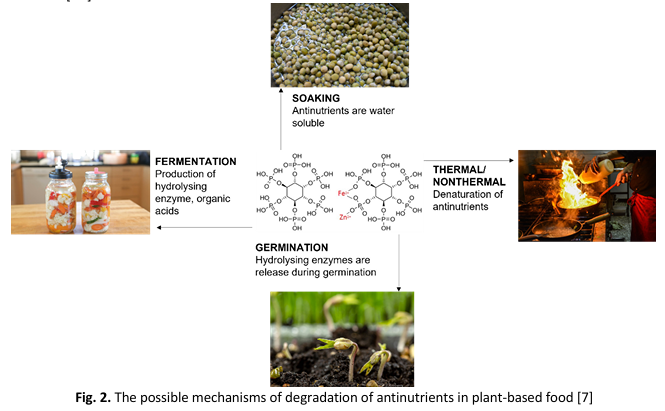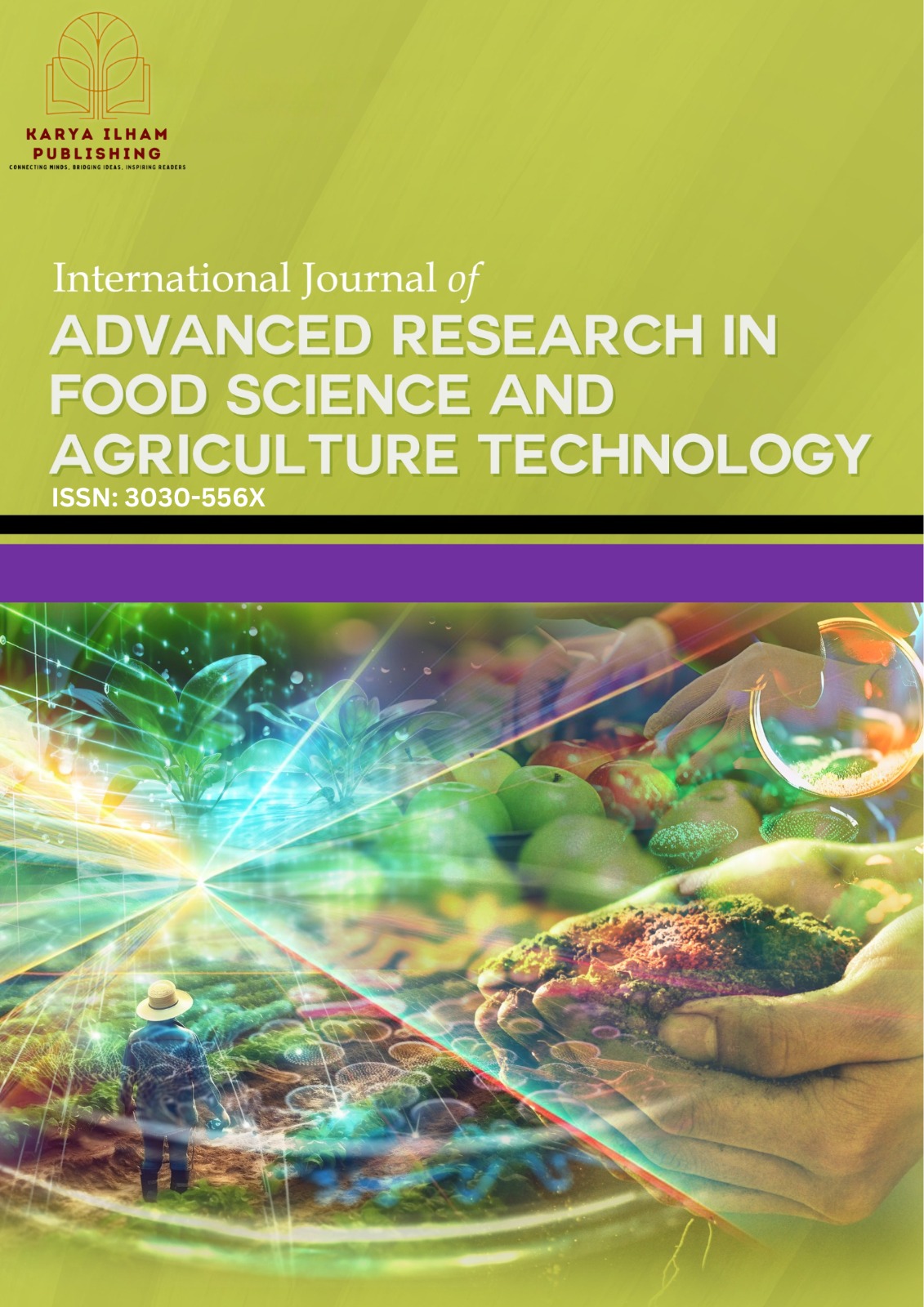Fermentation for Enhanced Biosynthesis and Bioavailability of Micronutrients, Prebiotics, Bioactive Peptides and Functional Fatty Acids in Food Products
DOI:
https://doi.org/10.37934/fsat.4.1.927aKeywords:
Fermentation, vitamins, minerals, bioactive compounds, prebiotics, conjugated fatty acids, bioavailability, lactic acid bacteriaAbstract
Microorganisms in fermented foods and beverages are crucial in enhancing both nutritive and bioactive components. Fermentation can occur spontaneously or be initiated by adding specific starter cultures. This review highlights the contribution of fermentation to the enhancement of micronutrients (vitamins and minerals) and three major functional macromolecules: prebiotics (carbohydrates), bioactive peptides (proteins), and functional fatty acids. During fermentation, microorganisms produce important vitamins, particularly B vitamins, and unique compounds like Vitamin K2. Non-digestible carbohydrates such as fructo-oligosaccharides and galacto-oligosaccharides, which have prebiotic effects, are also produced, promoting gut health. Enzymatic hydrolysis of proteins during fermentation generates bioactive peptides with benefits ranging from antioxidant properties to blood pressure regulation. Additionally, fermentation promotes the production of fatty acids, including short-chain fatty acids (SCFAs) and conjugated linoleic acid (CLA), linked to anti-inflammatory and metabolic health benefits. Overall, microbial fermentation offers a natural, efficient way to enrich foods with bioactive and nutrient-dense compounds, presenting a promising approach to improving global nutrition, particularly in addressing micronutrient deficiencies and supporting gut health. Harnessing these processes could help combat malnutrition and promote overall well-being.














